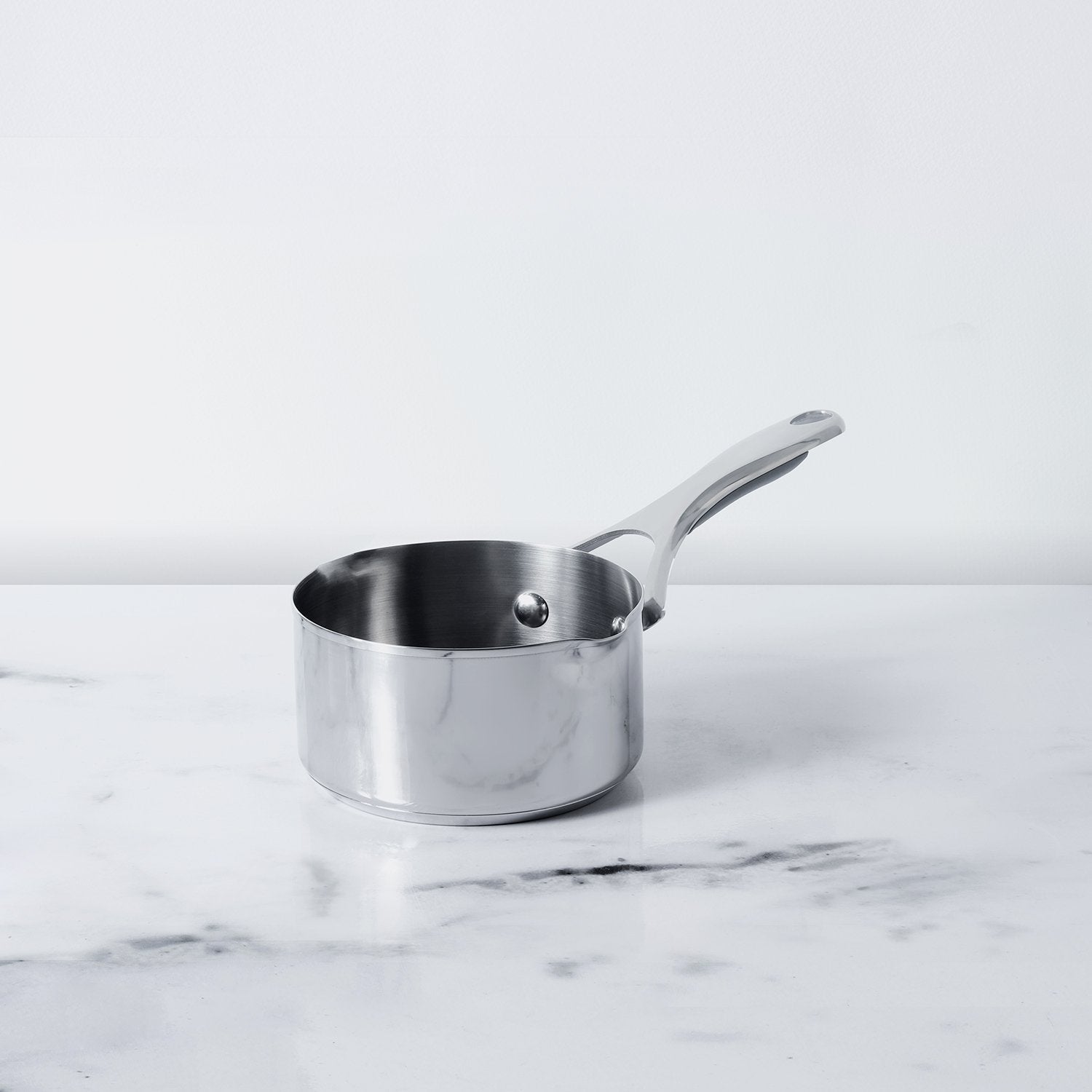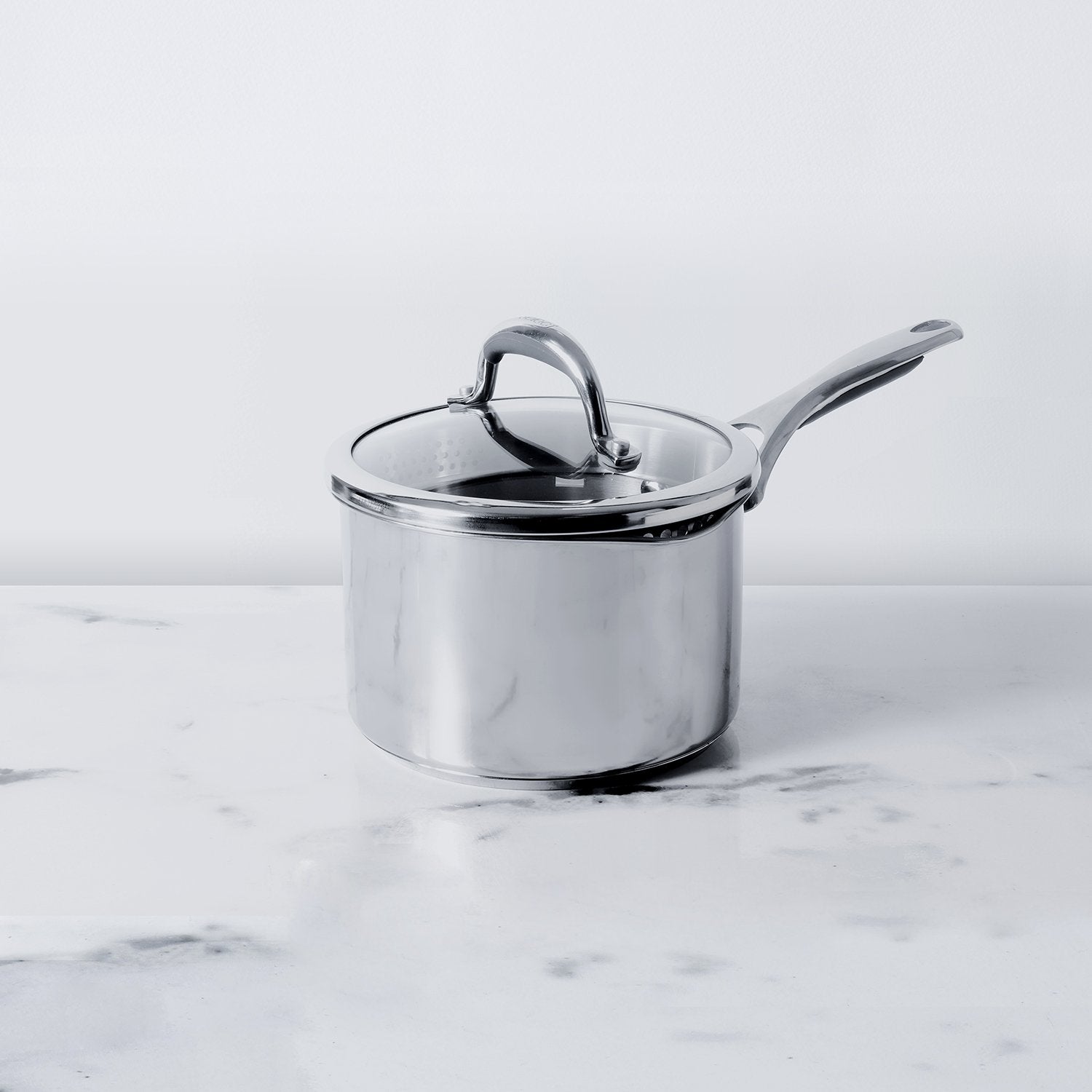Selecting the right pressure cooker material is essential for durability, performance, and cooking efficiency. Different materials have unique benefits, and the best choice depends on your cooking style, budget, and safety preferences. This guide will help you understand the pros and cons of various pressure cooker materials, making it easier to choose the perfect one for your kitchen.
Table of Contents
Types of Pressure Cooker Materials
Stainless Steel Pressure Cookers
Best for: Durability, long-term use, and health-conscious cooking
Pros:
-
Rust-Resistant & Long-Lasting – Stainless steel is highly durable and does not rust, ensuring long-term use.
-
Retains Nutrients – It does not react with acidic foods, preserving the original taste and nutrition of ingredients.
-
Scratch & Stain Resistant – Maintains its shine and appearance over time, even with regular use.
-
Compatible with Induction & Gas Stoves – Most stainless steel cookers work well on both gas and induction cooktops.
Cons:
-
Heavier than Aluminum – Stainless steel cookers are slightly heavier, making them less portable.
-
Slower Heat Conduction – They take longer to heat up compared to aluminum, which may increase cooking time.
Ideal for:
-
Those who prefer long-lasting, sturdy cookware
-
Health-conscious individuals who want a non-reactive material
-
Induction stove users looking for a versatile option
Aluminum Pressure Cookers
Best for: Budget-friendly, lightweight cooking options
Pros:
-
Affordable & Lightweight – Aluminum cookers are much lighter and more budget-friendly than stainless steel ones.
-
Quick Heating – Conducts heat faster, reducing cooking time and saving fuel.
-
Easy to Handle – Due to its lightweight nature, aluminum cookers are easy to move around and store.
Cons:
-
Less Durable – Aluminum is prone to scratches, dents, and corrosion over time.
-
Reacts with Acidic Foods – Cooking acidic ingredients (like tomatoes or vinegar) may cause a reaction, affecting food taste.
-
Not Always Induction-Compatible – Many aluminum cookers do not work on induction cooktops unless they have an induction base.
Ideal for:
-
Those looking for a budget-friendly and lightweight option
-
Quick and efficient cooking without heavy lifting
-
Households that need an easy-to-handle cooker for everyday use
Hard-Anodized Aluminum Pressure Cookers
Best for: A balance between durability, lightweight design, and non-reactive cooking
Pros:
-
Non-Reactive & Safe – Unlike regular aluminum, hard-anodized aluminum does not react with food, making it safer for cooking.
-
Scratch & Stain Resistant – The anodized layer makes it stronger, preventing scratches, corrosion, and stains.
-
Better Heat Distribution – Conducts heat evenly, ensuring well-cooked meals.
-
Lighter than Stainless Steel – Easier to handle without compromising on durability.
Cons:
-
More Expensive than Regular Aluminum – While more durable, hard-anodized cookers cost more than standard aluminum ones.
-
Not Always Induction-Compatible – Some models do not support induction cooktops.
Ideal for:
-
Home cooks looking for a durable yet lightweight cooker
-
Those who want a non-reactive material without opting for stainless steel
-
Users who want better heat distribution for even cooking
Triply Stainless Steel Pressure Cookers
Best for: Energy-efficient cooking, even heat distribution, and superior durability
Pros:
-
Three-Layered Construction – Combines aluminum and stainless steel layers for faster heating and energy efficiency.
-
No Food Burning – Ensures uniform heat distribution, reducing the chances of food sticking or burning.
-
Highly Durable & Rust-Proof – The stainless steel outer layer provides excellent longevity and corrosion resistance.
-
Works on All Cooktops – Compatible with both induction and gas stoves.
Cons:
-
Higher Cost – More expensive than standard stainless steel or aluminum models.
-
Slightly Heavier – Due to the layered construction, it may feel heavier to handle.
Ideal for:
-
Serious home cooks who want premium cookware
-
Those looking for energy-efficient and long-lasting pressure cookers
-
People who frequently cook delicate or slow-cooked dishes
How to Choose the Best Pressure Cooker Material for Your Needs
When selecting a pressure cooker, consider the following factors to determine which material suits you best:
1. Cooking Frequency:
-
If you cook daily, a stainless steel or triply cooker is a great long-term investment.
-
For occasional use, an aluminum or hard-anodized aluminum cooker may be more cost-effective.
2. Health & Safety Concerns:
-
Stainless steel and triply cookers are the safest choices as they do not react with food.
-
If choosing aluminum, opt for hard-anodized aluminum to avoid food reactions.
3. Budget Considerations:
-
Aluminum cookers are the most budget-friendly.
-
Hard-anodized and triply stainless steel cookers cost more but offer long-term benefits.
4. Compatibility with Your Stove:
-
If you use an induction cooktop, ensure the cooker is induction-compatible (stainless steel and triply are the best options).
-
For gas stoves, all materials work fine.
5. Weight & Handling:
-
If you prefer lightweight cookware, aluminum and hard-anodized aluminum are better options.
-
If durability is a priority, stainless steel and triply cookers are worth considering despite being heavier.
Conclusion
The right pressure cooker material depends on your cooking style, safety preferences, and budget. Stainless steel offers durability and health benefits, aluminum is lightweight and budget-friendly, hard-anodized aluminum provides a balance of both, while triply stainless steel delivers premium performance. Understanding these differences can help you make an informed decision, ensuring your pressure cooker meets your everyday cooking needs efficiently.











Leave a comment